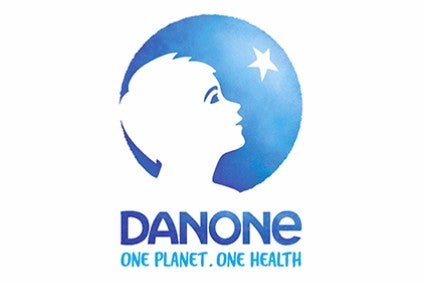
Danone has today (16 July) set out a series of investments in China, with the French giant’s infant-formula and medical-nutrition businesses getting funds for expansion.
The Aptamil owner said it is spending EUR100m (US$114.1m) to “strengthen” its “specialised nutrition” operations in the country. Danone’s specialised nutrition division is the company’s second biggest by sales – generating EUR7.56bn, or 30% of group sales, globally in 2019 – and houses the company’s infant-formula and medical-nutrition businesses.

Discover B2B Marketing That Performs
Combine business intelligence and editorial excellence to reach engaged professionals across 36 leading media platforms.
As part of the EUR100m investment, Danone has acquired the Murray Goulburn Dairy (Qingdao) Co. Ltd business in China from Canada-based dairy giant Saputo. Struck for an undisclosed sum, the acquisition gives Danone its first production facility for infant milk formula in China.
Some 410 miles further south, Danone is also putting part of the investment into its “advanced medical nutrition” facility in the city of Wuxi in Jiangsu province. The money will enable Danone to develop “protein-based liquid nutritional supplement solutions” as part of the group’s “food for special medical purpose” range. The company says those products “nutritionally support healthy ageing and facilitate recovery of patients who are ill”.
Danone, meanwhile, has also opened a research centre in Shanghai. The site will focusing on breast milk and gut health.
The company’s early-life nutrition unit in China has also been certified B Corp. More than one third of Danone’s global business is covered the certification. B Corp is a certification companies can qualify for if they meet certain requirements set out by B Lab, the US-based non-profit which created and administers the system, including obtaining a qualifying score in the B Lab impact assessment covering a raft of environmental, social and governance (ESG) criteria.

US Tariffs are shifting - will you react or anticipate?
Don’t let policy changes catch you off guard. Stay proactive with real-time data and expert analysis.
By GlobalDataVéronique Penchienati-Bosetta, the executive vice president of Danone’s specialised nutrition division, said: “The opening of the open science research centre, the acquisition of local manufacturing capabilities and the B Corp certification are key milestones for Danone’s presence in China as they will allow us to further invest responsibly in the promotion of healthy and balanced diets, grounded in scientific research and tailored to Chinese nutritional and health needs, habits, and traditions.”





